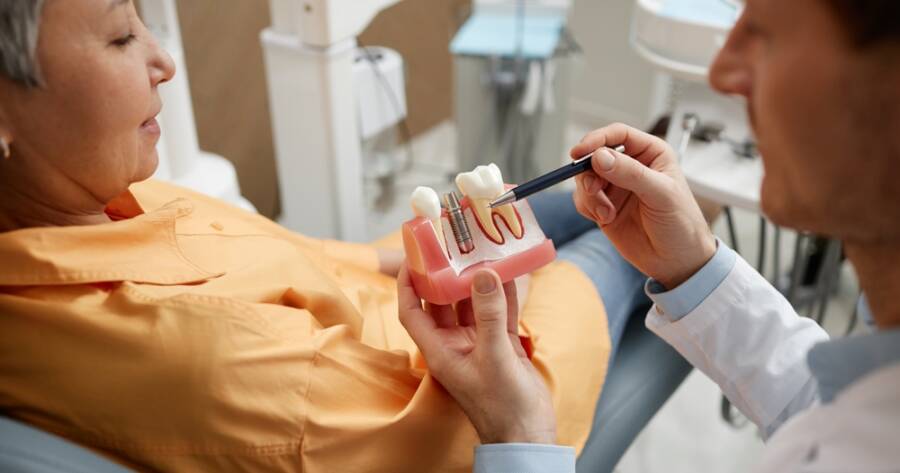Dental care can be costly, especially for seniors on a fixed income. Dental implants, which offer a lasting solution for missing teeth, often come with high costs. Fortunately, grants and programs exist to help low-income seniors afford these procedures. Learning about available options can make dental implants a realistic goal, improving quality of life and restoring confidence in their smile.
Understanding the Cost of Dental Implants
Dental implants offer a durable and long-lasting alternative to dentures or bridges. However, they often cost several thousand dollars per tooth, which can be out of reach for low-income seniors.
This cost typically includes the implant itself, the crown, and any necessary procedures to prepare the mouth. While implants offer long-term benefits, they often aren’t covered by Medicare, leaving many seniors looking for financial support.
Federal Programs That Offer Dental Assistance
While Medicare itself does not cover dental implants, some federal programs may offer help. Medicaid, for instance, is an option in certain states. Some states provide dental benefits to low-income seniors, including dental implants, as part of their Medicaid coverage.
It’s important for seniors to check with their state’s Medicaid office to see if they qualify for any assistance with dental care. Additionally, the Veterans Affairs (VA) health benefits program offers dental care to qualified veterans, potentially including dental implants. Eligible veterans should contact the VA to explore what types of dental care might be covered.
Private and Nonprofit Dental Grants
Beyond government programs, private and nonprofit organizations also offer financial support for dental care. Groups like the Dental Lifeline Network connect low-income seniors with volunteer dentists who provide no-fee or low-cost services, including dental implants. Dental schools can also offer a reduced-cost solution, as they provide treatments performed by students under the supervision of licensed professionals. Nonprofit organizations, such as Smiles for Everyone Foundation, frequently run outreach programs, helping seniors and others in need to access complimentary dental care, often including implants.
Some foundations provide grants specifically for low-income seniors. For example, the ADA Foundation offers grants through local dental societies and state dental associations. These grants often prioritize seniors with serious health conditions related to oral health, making it possible to get implants or other critical dental treatments.
State and Local Programs for Dental Support
Many states and cities offer programs designed to help low-income seniors with dental care costs. Programs vary significantly from state to state, so checking with local government offices is essential. State-funded health programs may offer grants for dental procedures, particularly if poor oral health is affecting the senior’s overall health.
Community health centers funded through local grants sometimes offer discounted or no-fee services to seniors, including dental implants. Seniors interested in exploring local options can start by visiting community health clinics, senior centers, and local nonprofits. Often, these organizations maintain lists of available dental support programs and can provide guidance on where and how to apply.
Tips for Finding and Applying for Dental Grants
Locating grants or low-cost dental programs takes time and persistence, but the results can be worth the effort. Here are a few practical steps:
- Research early: Many grants are awarded on a first-come, first-served basis, so early application is key. Seniors should start exploring potential grants and programs as soon as they know they need dental implants.
- Gather documentation: Many grants require proof of income, residency, and insurance status. Preparing these documents ahead of time can speed up the application process.
- Look for local resources: Many community organizations, dental clinics, and nonprofits keep updated information on available grants and can assist seniors in filling out applications.
- Ask questions: Speaking with representatives from programs like Medicaid, Dental Lifeline Network, and local health centers can clarify eligibility requirements and provide guidance on the application process.
Smile Brighter with Financial Assistance
Dental implants are a transformative option for seniors who want a lasting solution for missing teeth. With federal programs, nonprofit grants, and local resources, low-income seniors can find financial assistance to make dental implants more affordable.
Taking the time to apply for these programs can open doors to better oral health and a renewed sense of confidence.
